Writer/director Christofer Nilsson is currently based in Malmö, but grew up in the Swedish countryside. He was selected to take part in this year’s Script Pool Tallinn at the Discover Campus at Tallinn Black Nights Film Festival, and his film DANCING PIGEONS is currently on T-Port for our Professional Subscribers to stream.
In this interview we caught up about growing up in a one-bus stop town, the lifechanging importance of a DIY arts scene, and the deeply personal and human story behind his film pitch.
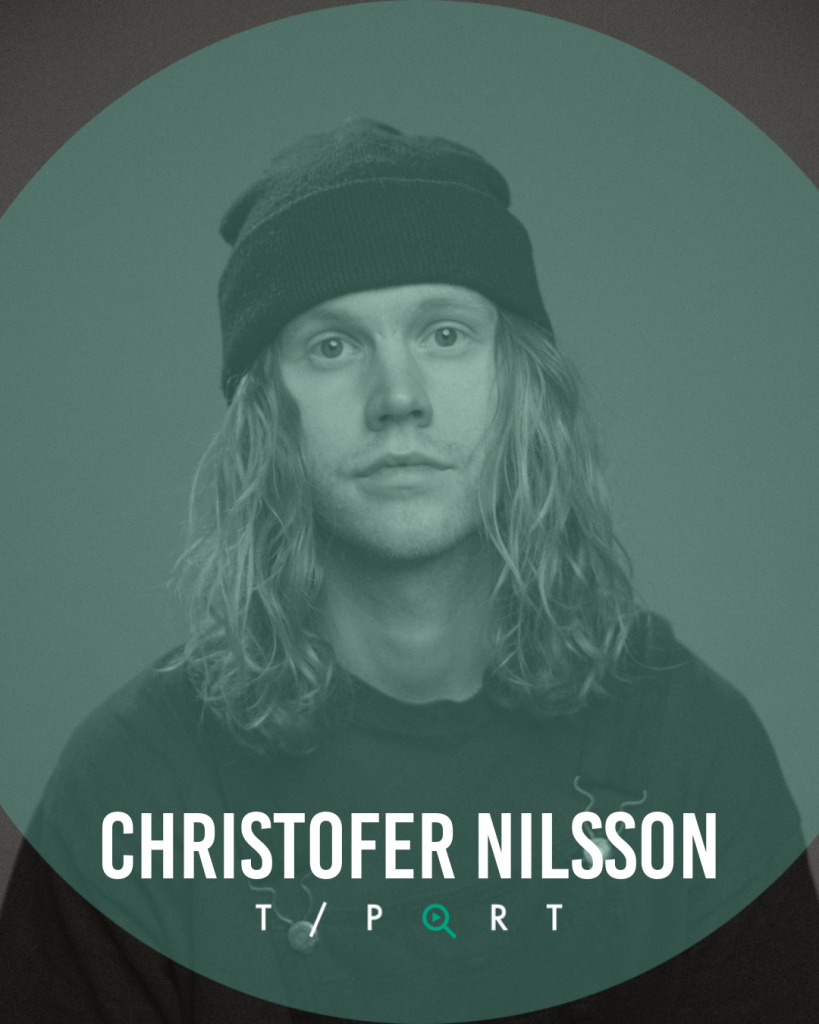
Hi Christofer, tell us a bit about yourself
I’m a writer/director based in Malmö in southern Sweden, but grew up in the countryside – not the cute Astrid Lindgren-version though, more like a closed down gas station, social housing and that blessed bus stop to get you out of there.
There was no art house cinema around. My film obsession rather came from obsessively watching behind-the-scenes-extras on rental DVD’s (mostly Jackie Chan films), and for my introduction to the “different” kind of films: pirated camcorder-in-the-back-of-a-cinema versions – “Old Boy” was a big one then.
Honestly, I didn’t think filmmaking, or art in general, was meant for me. But feeling my soul slowly dying in that small town with a dead-end job, I moved to a bigger city and started making music videos. Here, in Malmö, I got a sense for the DIY side of the craft, which later gave me the confidence to actually try it out, and to find my voice.
Thanks to the encouragement and support of our regional film center and my producer, I eventually made the short “The Ballad”, a Swedish-French co-production that reached quite a large audience thanks to being broadcast on ARTE France and SVT, as well as doing a world-wide festival run. My latest short “Dancing Pigeons” (also SE-FR) just premiered, winning the Audience Award at Uppsala ISFF.
This upbringing and journey, of being somewhat of an outsider, having not gone to film school or grown up in the art world, and rather just having “made things”, is what’s shaped my voice into what it is – to with curiosity, compassion and humor portray problematic characters through themes of loneliness, class and broken dreams in rural settings.
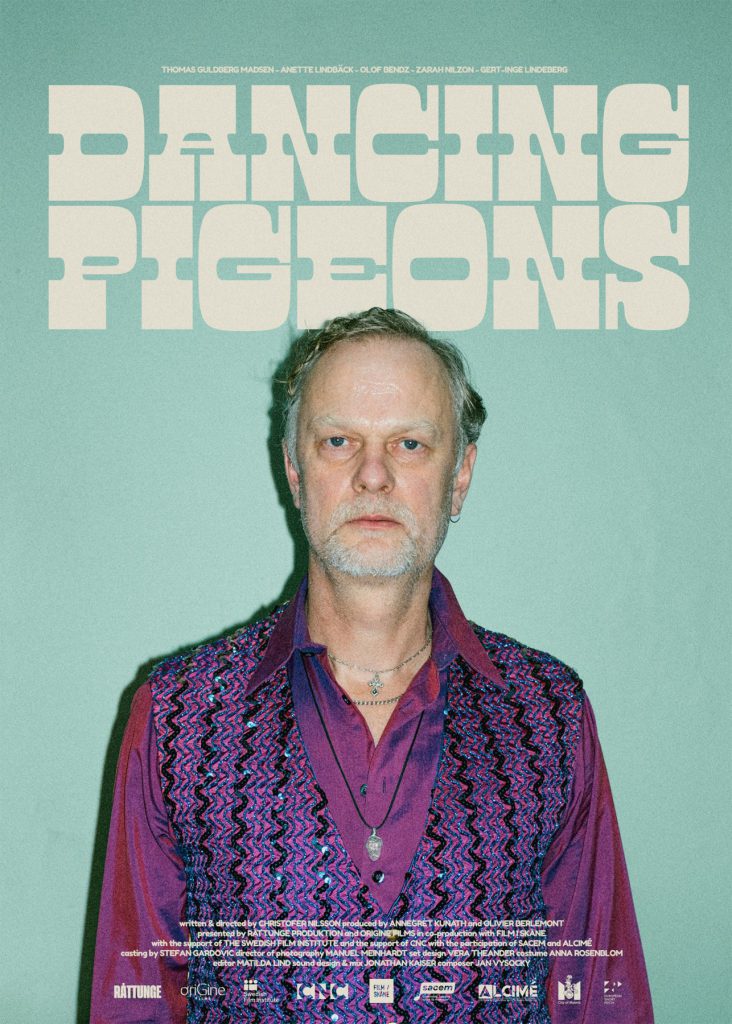
Can you give us a synopsis of your PÖFF Script Pool project?
A lonely, middle-aged hairdresser joins a psychic medium course seeking meaning, but when she secretly claims to be able to channel a grieving mother’s dead child, she finds herself igniting obsession, rivalry, and a descent into spiritual delusion.
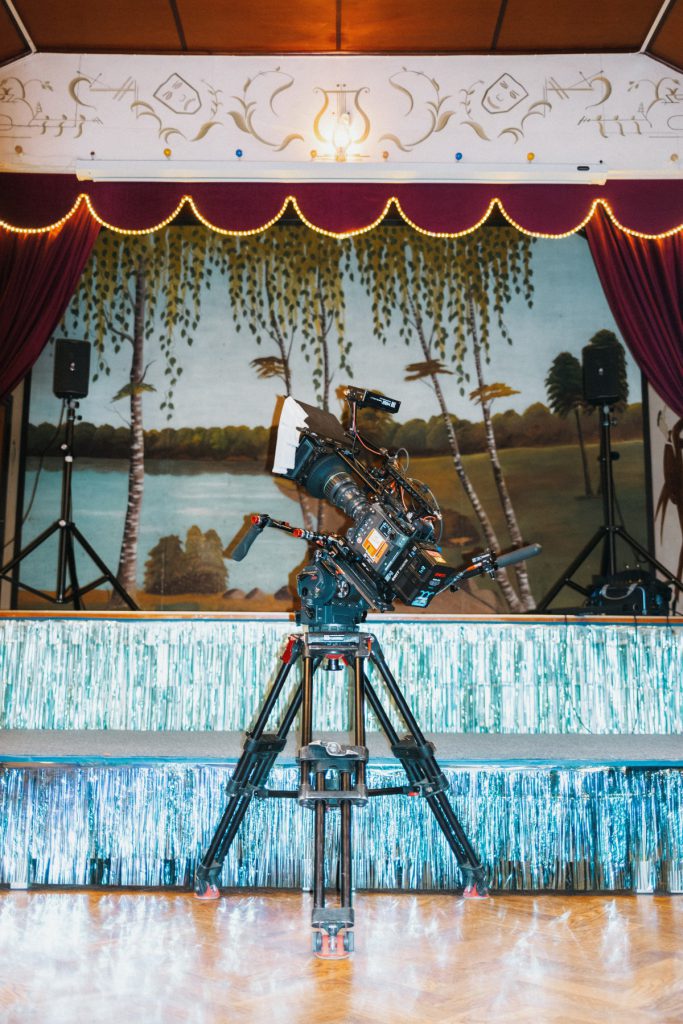
Where were you when you found out about the Script Pool selection and how did you feel / react?
I was visiting some friends in Istanbul at the time, a short vacation. I felt extremely humbled – getting this recognition that one’s project is something that other people resonate with and believe in made me so happy (and relieved, since it’s somehow a confirmation that all that work was time well spent, and I’m not too delusional).
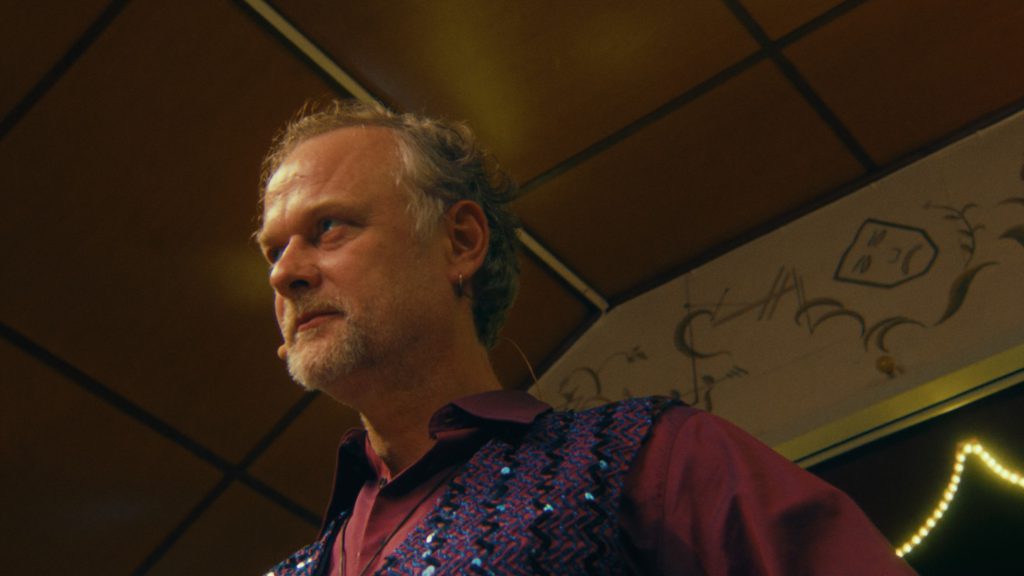
Tell us about your film that’s just arrived on T-Port. What inspired you to tell the story you told?
Well, growing up, my mother dragged me along to an assortment of New Age activities. At first it was just an expensive hobby, but when my father suddenly passed, and my mother lost her job of 35 years, the life crisis pushed her deeper. Burdened by grief, and guilt from their quite tumultuous relationship, she searched for – and found – comfort with psychic mediums.
To me as a teenager, they were the villains of my life – swarming around my mother, sucking out the little unemployment benefits she received at the time. But as I got older, they started to fascinate me. For sure they must be able to wake up each morning, look themselves in a mirror and say: “I’m a good person. I’m helping people.”
Observing them, researching, what I saw was far from just cynical financial exploitation, but rather something way more complex – an array of wants and needs, in different ways filled by the intimate connection and gratification that comes from helping the grieving.
These things are so complex.
For example, I regret not being a better son to my father. I regret not saying that I love him in that hospital before he passed away. So believe me when I say I understand why people go to psychic mediums. To right a passed wrong, get that forgiveness, hear that he’s proud of me… it would be such a massive relief.
But I honestly don’t believe I deserve to be forgiven for this. In my view, the brutal reality of death is not something we can cheat. My father is gone. I have to live with it. And the only way I can make up for my guilt is to learn and grow from my past mistakes. To always be good to people around me, from this moment forward. To tell them I love them, before it’s too late.
But who am I to decide what’s right and wrong – if people should get the chance to move on, and at what cost? How far is it actually ok to go in our desperate pursuits to ease the pain we carry?
So as you can tell, I find this all so fascinating. And it really engages people, since I’ve come to find that in one way or another, a lot of us have experiences with these worlds.
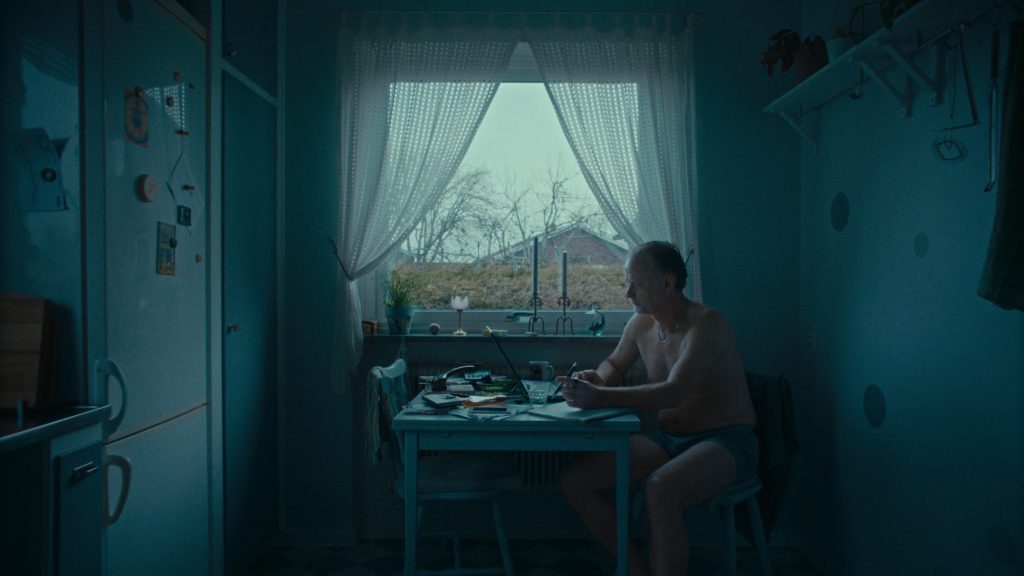
What have been the challenges you’ve faced in your film making career so far? How do you view them now?
Imposter syndrome, for sure. Not necessarily around the craft-side of filmmaking, but when it comes to my artistic voice. Who am I to ask for peoples’ attention? I’m not interesting.
But with some wise words and guidance from friends, colleagues and tutors, I now think about it like this: If I find something so deeply interesting, something that’s like an itch I just HAVE to scratch – an itch so bad I’m putting the majority of my time obsessing with it – then there’s probably other people out there who’d like to watch it.
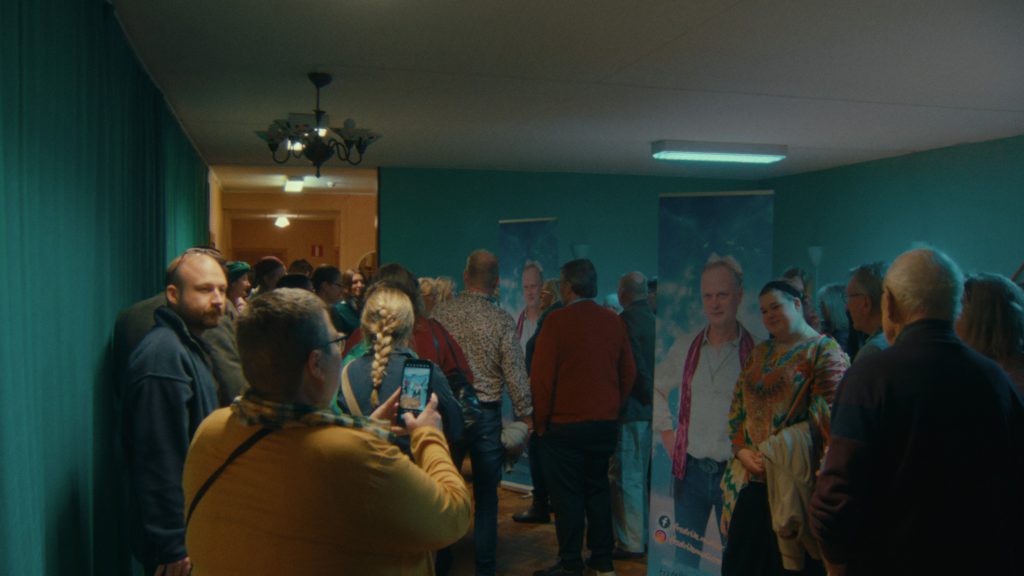
Could you share any advice for filmmakers who are looking to submit to next year’s Script Pool – what would you suggest they do?
Write honestly about what you are extremely excited about with your project. You cannot possibly guess what people want to hear, just be true to your own excitement and curiosity, because it will translate through the page.
What are the biggest challenges for you in promoting and distributing your films?
Probably a mix of my very Swedish mindset (“who am I to ask for your attention – I’m not better than other people” (I like it though, but it’s not to consider a strength when it comes to marketing)), and the fact that my films are usually unknown, old, wrinkly actors in unsexy environments playing problematic characters. It’s aesthetically the polar opposite of a Hollywood production, haha.
But with the right sales agent and distributors attached, I’m sure we can turn these points into strengths.
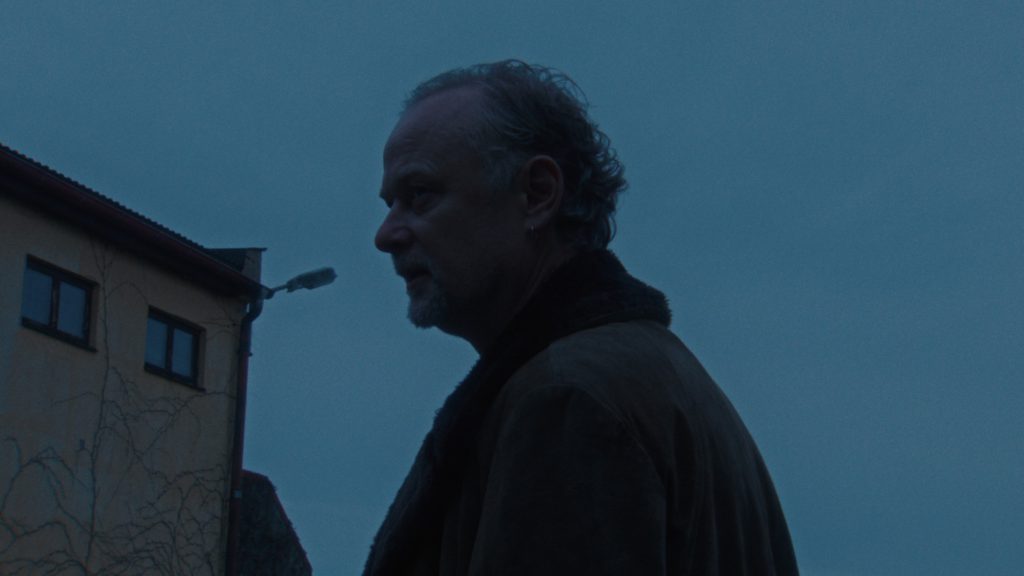
What have you learned through your film making career so far that you wish you’d known when you started?
I’m very happy I didn’t know how hard it is to get a film financed, and how even when you do succeed, you’re still poor. So not that one. (I would’ve still pursued it though, stubborn as I am.)
But maybe – how trying out your voice, and especially failing(!) at it, is an absolute integral part of it all. And creating the space to allow yourself to fail will allow you to take greater risks and find your path faster, I think. You will fail sometimes – you will write a shit script or make a shit film – that’s how you learn.
If you were to have infinite resources – walk us through your fantasy film project
I’d love to make a low fantasy film – Lord of the Rings light, with the nordic folk horror setting of the classic Swedish tabletop-RPG Trudvang. Nerdy, I know.
But I’d like to twist the genre by not doing the classic good vs evil, but focusing on grey areas of both as they’re siphoned through the characters meeting grief, horror and absurdity. Something that has a lot of humanity in it – tragedy, complexity and comedy. Good characters turning bad in their efforts to do good, and evil characters having their complexity and surprising motivations revealed. That’d be fun and very engaging I think.
And I’d love to work with a lot of practical effects – miniature landscapes, matte paintings, creature work. My god, I would explode out of excitement.
Submit Your Short To T-Port Today
T-Port films are only accessible to professionals, so your premiere status will not be affected.Stake your place in the next generation of filmmakers waiting to be discovered for only 15 Euros / year. Find out more on our website and get started with T-Port today.
Or sign up for our newsletter to get regular updates on the current trends and exciting innovations in the short film universe.
